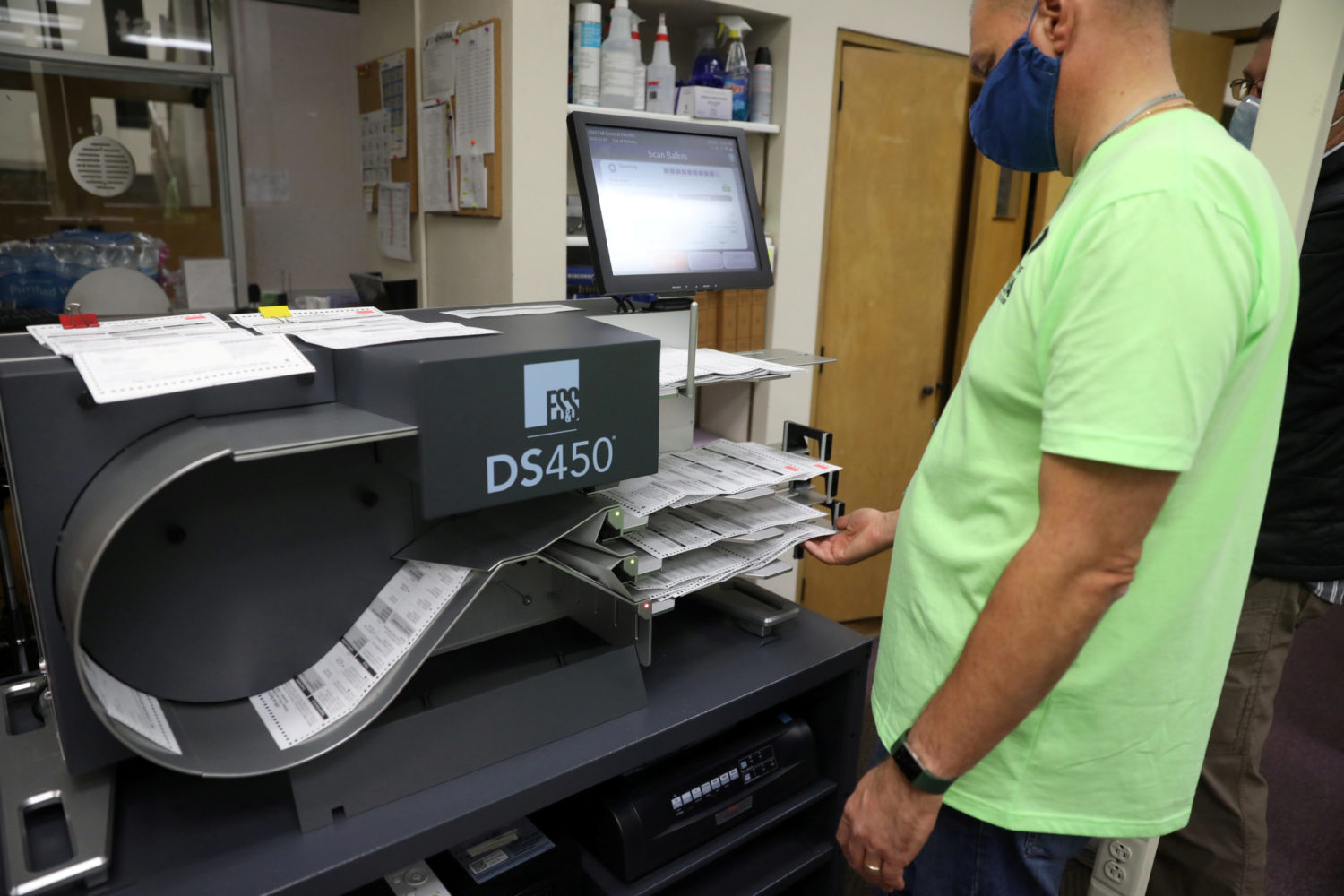
WILMINGTON, Del. (Reuters) – With the U.S. presidential election between Republican President Donald Trump and Democratic challenger Joe Biden too close to call, the Trump campaign and Republicans turned to the courts to try to invalidate votes in Pennsylvania and block Michigan officials from counting ballots.
For the lawsuits to have any impact on the outcome, the election would have to come down to one or two states and hang on the outcome of a few thousand votes, which seemed unlikely, legal experts said.
Below is a list of the cases that will play out in the coming days and possibly weeks:
PENNSYLVANIA COURT BATTLES
The Trump campaign sued Pennsylvania’s Secretary of State Kathy Boockvar and county election officials to limit the time election officers have to contact mail-in voters to correct defects on their ballots.
The Commonwealth Court will hear the case on Friday.
A similar case in U.S. District Court in Philadelphia by Republican officials against election officials from Montgomery County got a skeptical reception from the federal judge.
The Republican officials on Thursday withdrew their request for an injunction.
The Trump campaign is also fighting Philadelphia election officials over observing vote counting in the city and was granted better access to the proceedings. An appeal is pending in the state’s supreme court.
Republicans in the state have also asked the U.S. Supreme Court to review a decision from the state’s highest court that allowed election officials to count mail-in ballots postmarked by Tuesday’s Election Day that are delivered through Friday.
On Wednesday, Trump’s campaign filed a motion to intervene in the case.
U.S. Supreme Court justices said last week there was not enough time to decide the merits of the case before Election Day but indicated they might revisit it afterwards.
Justice Samuel Alito, joined by fellow conservatives Clarence Thomas and Neil Gorsuch, said in a written opinion that there is a “strong likelihood” the Pennsylvania court’s decision violated the U.S. Constitution.
Pennsylvania election officials said they will segregate properly postmarked ballots that arrived after Election Day.
With about 92% of the vote counted, Trump led Biden in Pennsylvania with 50.2% of the vote to 48.5%, according to Edison Research.
MICHIGAN BALLOT-COUNTING FIGHT
Trump’s campaign on Wednesday filed a lawsuit in Michigan to stop state officials from counting ballots until it has an election inspector at each absentee-voter counting board. The campaign also wanted to review ballots that were opened and counted before an inspector from its campaign was present.
On Thursday, Michigan Court of Claims Judge Cynthia Stephens dismissed the case.
Biden was projected to win the state with 50.6% of the vote, with 99% of the expected vote in, according to Edison Research.
GEORGIA BALLOT FIGHT
The Trump campaign on Wednesday filed a lawsuit in state court in Chatham County that alleged late-arriving ballots were improperly mingled with valid ballots, and asked a judge to order late-arriving ballots be separated and not be counted.
The case was dismissed on Thursday.
Trump leads Biden 49.5% to 49.2% with 98% of Georgia’s expected votes counted, according to Edison Research.
NEVADA
Trump campaign officials said they planned to file a lawsuit in the state after alleging without evidence that thousands of improper votes were cast by dead people and by voters who were no longer residents of populous Clark County.
Biden leads Trump in Nevada 49.4% to 48.5% with 89% of the expected vote counted, according to Edison Research.
U.S. POSTAL SERVICE LITIGATION
A U.S. judge on Wednesday said Postmaster General Louis DeJoy must answer questions about why the U.S. Postal Service failed to complete a court-ordered sweep for undelivered ballots in about a dozen states before a Tuesday afternoon deadline.
U.S. District Judge Emmet Sullivan is overseeing a lawsuit by Vote Forward, the NAACP, and Latino community advocates who have been demanding the postal service deliver mail-in ballots in time to be counted in the election.
(Reporting by Tom Hals in Wilmington, Delaware; Editing by Kevin Liffey and Sonya Hepinstall)











